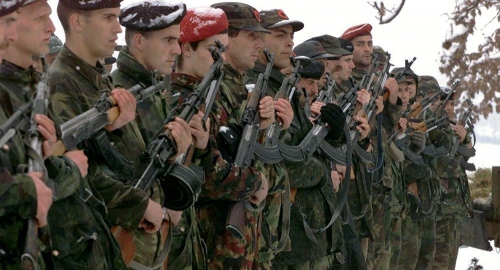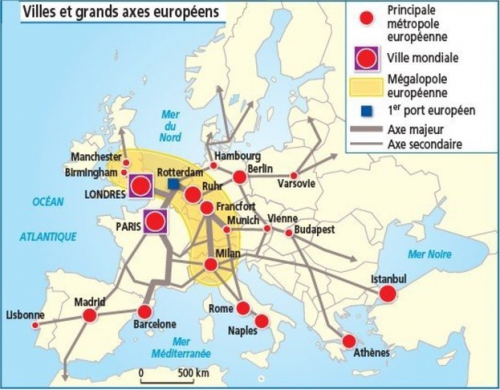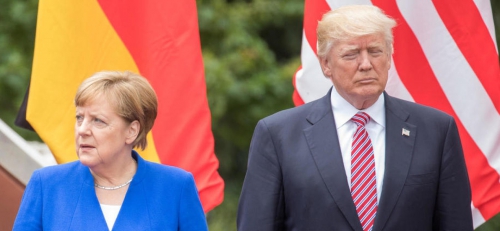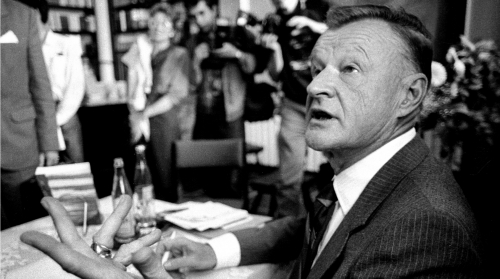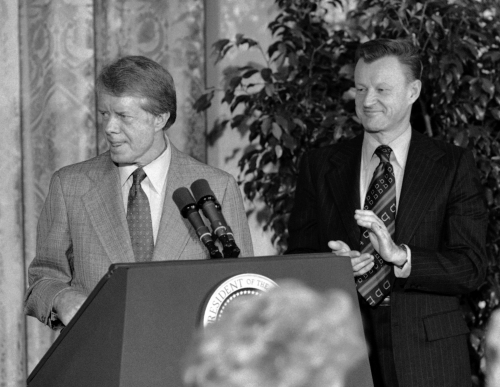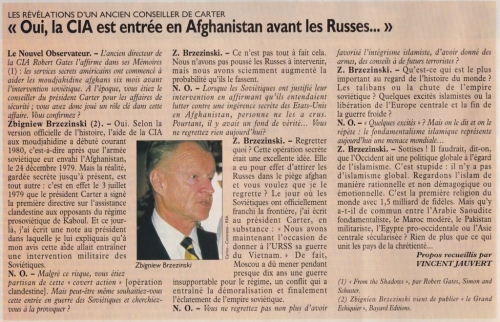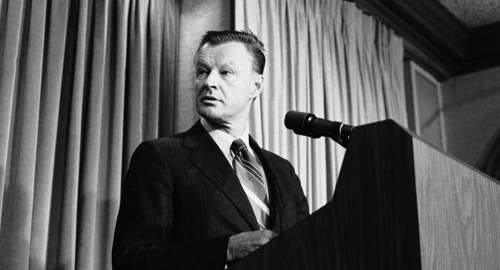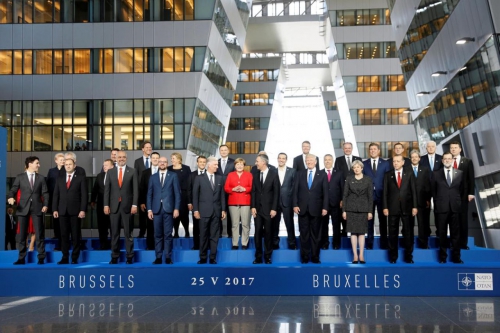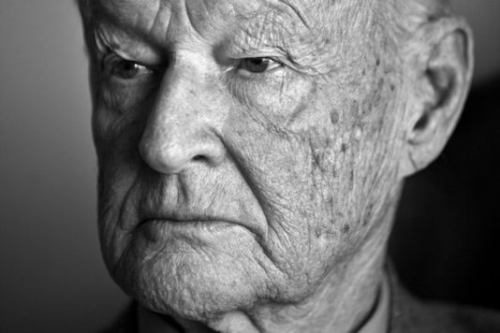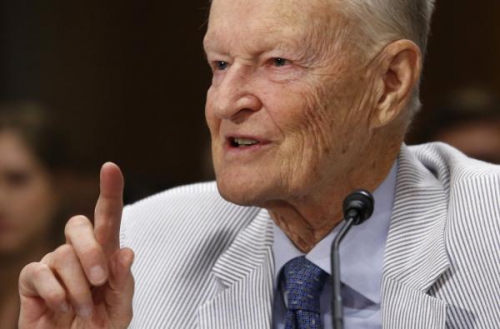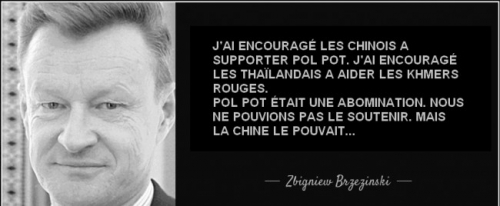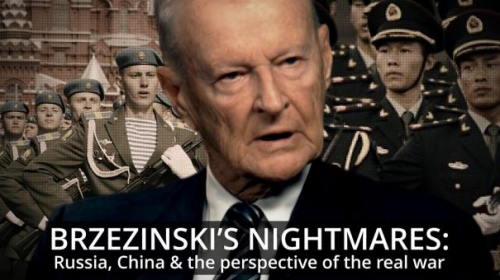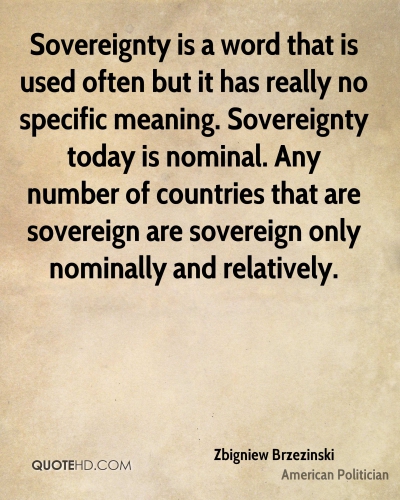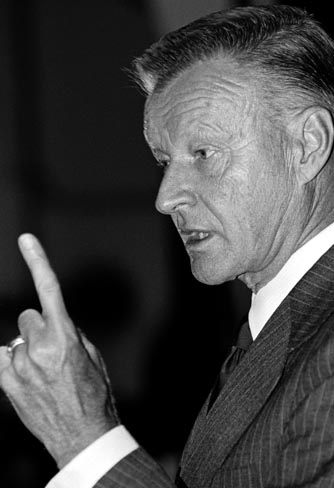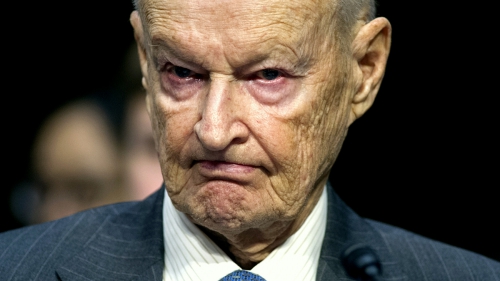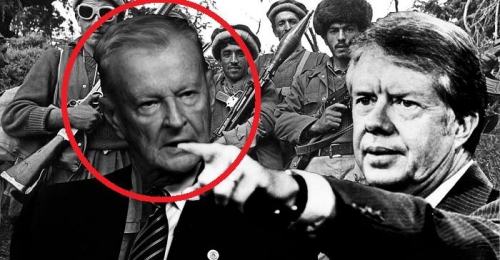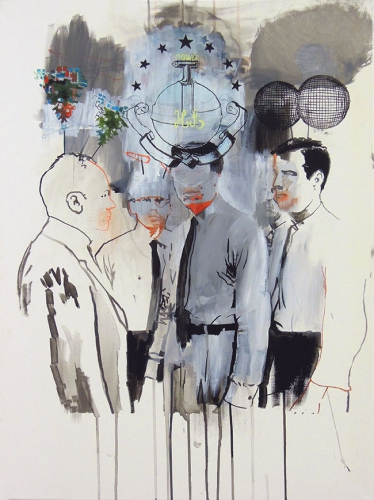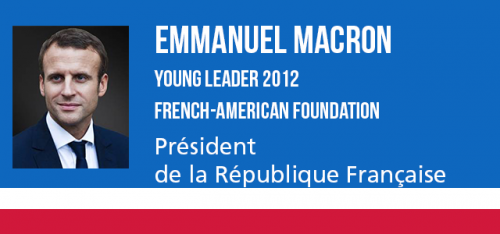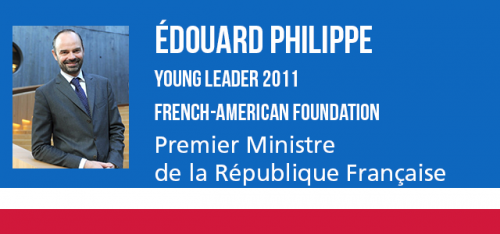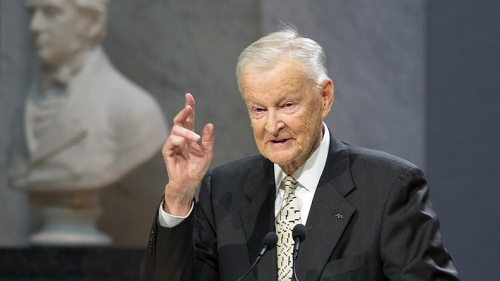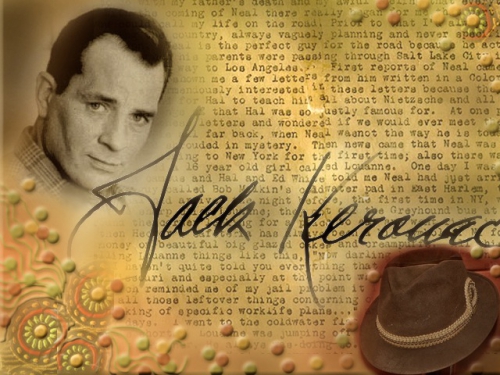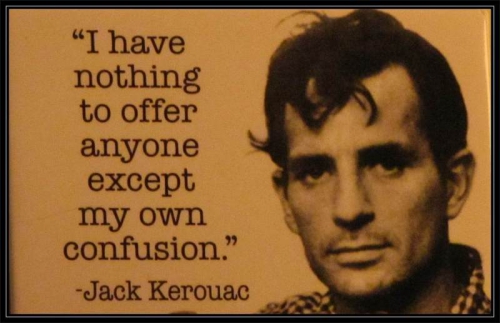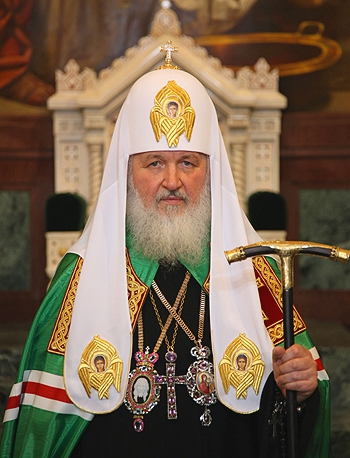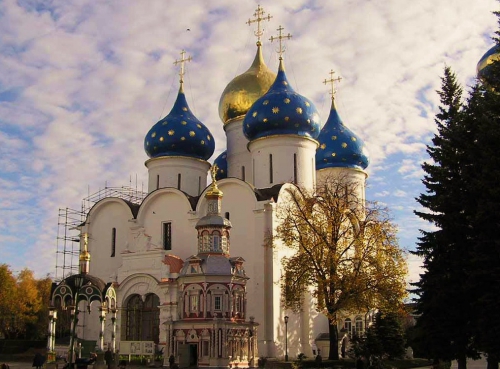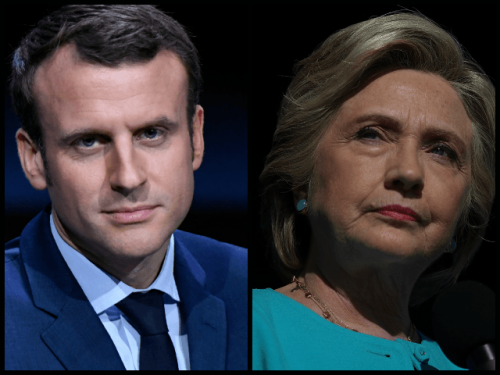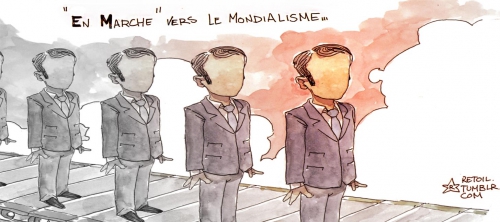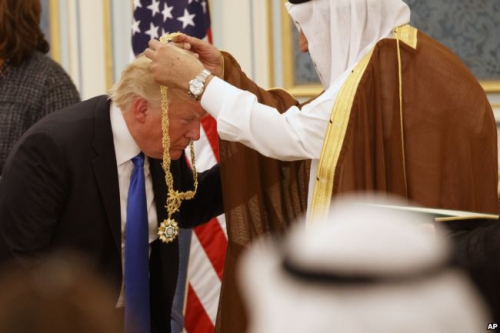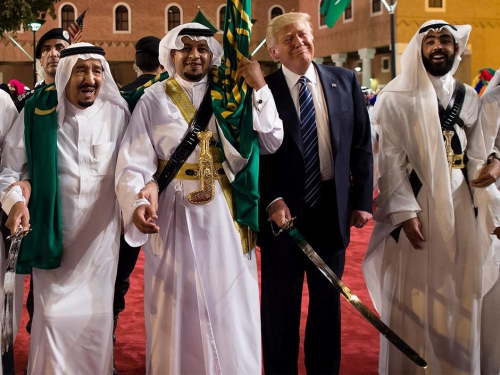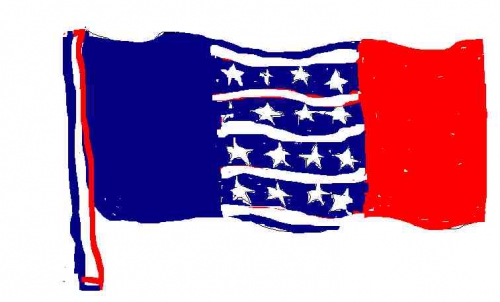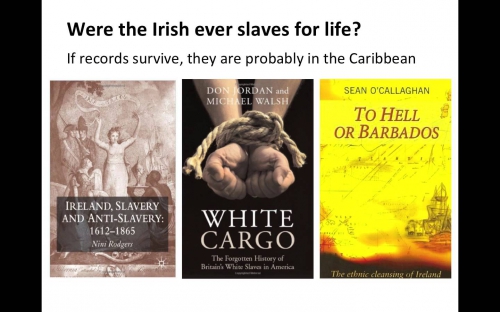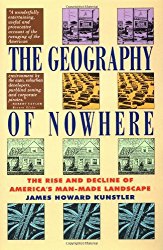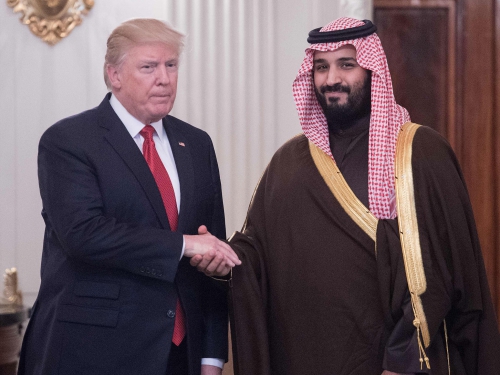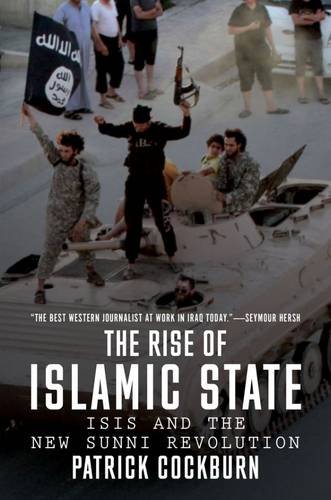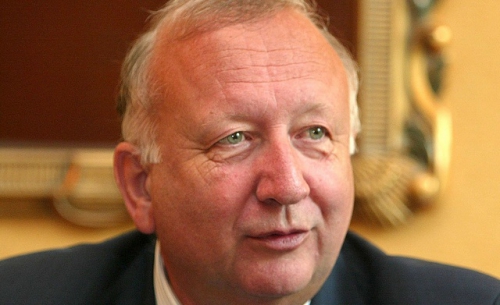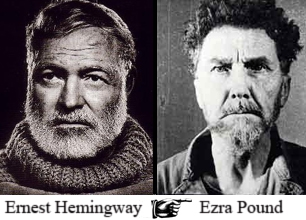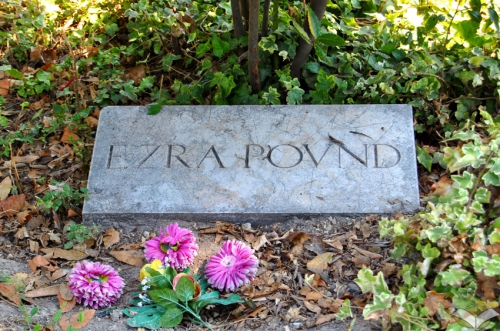L’œil américain sur l’échiquier mondial.
♦ Il est toujours bon de rappeler certaines choses, même si celles-ci furent dites il n’y a pas si longtemps de cela ; n’est-ce pas un des premiers principes pédagogiques ?
Ainsi, les propos de Zbigniew Brzezinski peuvent-ils prendre aujourd’hui peut-être davantage de reliefs, de couleurs, quatorze ans après la publication française de son ouvrage intitulé Le grand échiquier paru chez Fayard.
Très proche de l’exécutif américain, ancien conseiller à la sécurité de la présidence des Etats-Unis, expert fort écouté du Center for Strategic and International Studies, membre du très influent Counsil on Foreign Relations, Zbigniew Brzezinski est loin d’être un personnage de second rang. Quelques années après le médiatique « Clash of civilisations » de Samuel P. Huntington, où développant le concept d’Occident cet auteur désignait les adversaires des Etats-Unis et l’importance du bloc islamo-confuséen, et où le paradigme de l’après guerre froide devenait le choc des civilisations, Brzezinski faisait paraître The grand chessboard. Cet ouvrage est un examen sérieux de géopolitique mondiale, et trace les objectifs stratégiques des Etats-Unis pour les prochaines décennies.
Dès l’introduction, nous sommes renseignés sur la portée de l’ouvrage ; il ne s’agit pas d’un énième travail de géostratégie présentant les forces, les interactions, les évolutions, les constantes du monde contemporain, mais bien d’une vision de géostratégie s’inscrivant dans une eschatologie terrifiante. Le but est clair : asseoir et renforcer le rôle dominant des Etats-Unis comme première puissance mondiale ; pour cela, nous dit Brzezinski, il faut à tout prix empêcher l’émergence d’une puissance sur le continent eurasien capable de rivaliser avec les Etats-Unis. En effet, nous dit-il, celui qui tiendrait ce continent serait le maître du monde ; Hitler et Staline, qui l’avaient compris, s’y sont d’ailleurs essayés dans le passé mais sans succès. Les Etats-Unis doivent veiller au respect légitime de la primauté américaine sur cette Eurasie, car ses objectifs sont « généreux ». Ainsi, dans cette logique implacable, défier l’Amérique serait agir contre « les intérêts fondamentaux de l’humanité ». Tout est dit.
Dans le premier chapitre, nous est brossé le tableau de l’évolution de la puissance américaine depuis 1898 (guerre contre l’Espagne) jusqu’à son état actuel de première puissance mondiale. Nous y voyons cette attitude anti-européenne constitutive de la création des Etats-Unis : cette Europe aux « privilèges archaïques et aux hiérarchies sociales rigides ». La première irruption des Etats-Unis dans la géopolitique européenne n’est pas abordée du point de vue de ses portées réelles, meurtrières (les quatorze points de Wilson portant en germe les conflits européens à venir), mais sous l’angle du formidable idéalisme américain allié à une puissance militaire, économique sans précédent qui font que ses principes sont pris en compte dans la recherche de solutions aux problèmes européens ; le nouvel acteur de l’arène internationale fait valoir sa vision du monde.
La fin de la seconde guerre mondiale fait émerger un monde bipolaire, et le temps de la guerre froide voit se mettre en place des enjeux géopolitiques clairement définis : les Etats-Unis contre l’Eurasie (URSS), avec le monde comme enjeu. Avec l’effondrement et l’éclatement de l’Union Soviétique, les Etats-Unis deviennent, nous dit Brzezinski, « la première puissance globale de l’histoire ». Le parallèle avec Rome est vite amené, et nous apprenons que Rome (empire simplement régional) est même dépassée.
L’auteur établit ensuite la liste des empires ayant eu une aspiration à la domination mondiale ; il y en a eu trois : l’empire romain, la Chine impériale et l’empire mongol. Parmi ces trois, seul l’empire mongol approche la définition moderne de puissance mondiale, nous dit Brzezinski ; seul cet empire peut être comparé aux Etats-Unis d’aujourd’hui. Mais, après deux siècles d’existence (du XIIIème au XVème siècle), cet empire disparaissait sans laisser de traces ; ce qui devrait faire réfléchir d’avantage l’auteur.
L’Europe devient ensuite le foyer de la puissance globale et le lieu où se déroule les luttes pour l’acquérir, sans toutefois être dominé par un Etat en particulier. Brzezinski note que la France en premier lieu (jusqu’en 1815), puis la Grande-Bretagne (jusqu’en 1914) ont eu leur période de prééminence. Mais, aucun de ces empires n’a vraiment été global. Le fait que les Etats-Unis se soient élevés au rang de puissance globale est, lit-on, unique dans l’histoire. Ce pays a un appareil militaire qui est le seul à avoir un rayon d’action global.
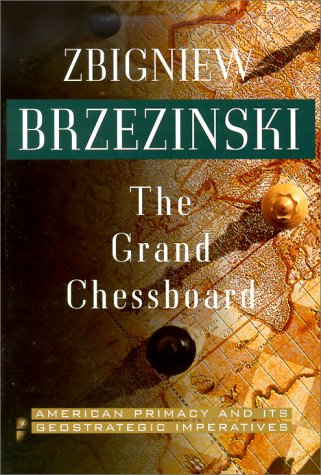
Cette prééminence fait de l’ombre à la Russie et à la Chine ; néanmoins, le retard technologique de ces deux pays fait qu’ils n’ont pas de politique significative sur le plan mondial. Dans les quatre domaines clés (militaire, économique, technologique et culturel) les Etats-Unis sont dominants, et ceci lui confère la position de seule superpuissance globale.
Brzezinski développe ensuite ce « système global » propre aux Etats-Unis. La puissance globale des Etats-Unis viendrait d’une part du pluralisme de sa société et d’autre part de son système politique. Incidemment, nous apprenons que par le passé les Européens, dans leurs visées impériales, n’ont été que des « aventuriers ». Autre élément de ce système : les idéaux démocratiques sont aujourd’hui identifiés dans le monde comme issus de la tradition politique américaine ; les Etats-Unis sont devenus Le modèle incontournable. La doctrine américaine, « mélange actif » d’idéalisme et d’égoïsme, est le seul qui prévaut; bien entendu ceci pour le plus grand profit de tous.
Mais cette suprématie américaine repose également, apprend t-on, sur un système élaboré d’alliances couvrant la planète. L’OTAN, l’APEC, le FMI, l’OMC, etc. (dans lesquels les Etats-Unis ont un rôle prépondérant, sinon directif) constituent un réseau mondial actif et incontournable dans la constitution et la conservation de la puissance globale américaine. Et les Etats-Unis se doivent de conserver cette position d’hégémonie globale sans précédent ; il y aurait comme une « mission » confiée à ce pays. Il lui faut impérativement prévenir toute émergence de rivaux, maintenir le statu quo ; ceci au nom du bien être de l’humanité, bien entendu.
De nouveau, dans le second chapitre, et avec la même logique utilisé par l’auteur dans l’introduction, on apprend que le maintien de la prééminence des Etats-Unis dans le monde va de pair avec la paix dans le monde. L’enjeu est l’Eurasie, nous dit Brzezinski ; C’est l’Eurasie qui est « l’échiquier », c’est là que se déroule le jeu pour la domination mondiale. Apparaît alors la phobie des Etats-Unis : une éventuelle unité politique de l’Eurasie. Et l’auteur d’établir l’univers des possibles, la recension des différents cas de figures qui feraient que les Etats-Unis seraient en position d’affaiblissement ; nous apprenons que l’hégémonie américaine est superficielle, et qu’elle ne passe pas par un contrôle direct sur le monde. C’est ce qui distinguerait l’Amérique des empires du passé. De plus, toujours dans les faiblesses du « géant », il y a le fait que le système de la démocratie « exclu toute mobilisation impériale » ; mais on peut en douter justement par ces moyens d’alliances et de coalitions très « incitatifs » mis en place. Nous sommes également surpris dans la vision que Brzezinski prête aux Américains face à leur statut de superpuissance mondiale sans rivale : ils ne considèreraient pas que ce statut leur confère des avantages particuliers. Les faits prouveraient plutôt autre chose.
Nous abordons plus loin les thèmes de la géostratégie et de la géopolitique. Sans surprise, nous apprenons que la géographie prédestine les priorités immédiates des pays ; nous le savions depuis au moins Napoléon. Halford J. Mackinder au début du siècle avait tracé déjà ce que nous avions vu plus haut développé par Brzezinski, à savoir que « qui gouverne l’Europe de l’Est domine le heartland, qui gouverne le heartland domine l’île-monde, et qui gouverne l’île-monde domine le monde » (le heartland étant le cœur continental). L’Amérique suit donc cette voie pour parvenir au maintien de son rang.
Suit une analyse des principaux acteurs et une reconnaissance appropriée du terrain. Les Etats eurasiens possédant une réelle dynamique géostratégique gênent les Etats-Unis, il s’agit donc pour ces derniers de formuler des politiques spécifiques pour contrebalancer cet état de fait. Ceci peut se faire par trois grands impératifs : « éviter les collusions entre vassaux et les maintenir dans l’état de dépendance que justifie leur sécurité ; cultiver la docilité des sujets protégés ; empêcher les barbares de former des alliances offensives ». Tout le programme des Etats-Unis est là. Pour la poursuite de son analyse, Brzezinski distingue les « acteurs géostratégiques » (France, Allemagne, Russie, Chine et Inde) des « pivots géopolitiques » (Ukraine, Azerbaïdjan, Corée, Turquie et Iran). Les premiers sont en mesure de modifier les relations internationales, « au risque d’affecter les intérêts de l’Amérique » ; les seconds ont une position géographique leur donnant « un rôle clé pour accéder à certaines régions ou leur permet de couper un acteur de premier plan des ressources qui lui sont nécessaires ».
La France et l’Allemagne sont deux acteurs géostratégiques clés qui, par « leur vision de l’Europe unie », (…) « projet ambitieux », (…) « s’efforcent de modifier le statu quo ». Ces acteurs sont l’objet « d’une attention toute particulière des Etats-Unis ». Cependant, on peut se poser la question de la « réelle volonté d’indépendance européenne » instiguée par ces deux pays.
La Russie, joueur de premier plan malgré l’affaiblissement de son Etat, n’a pas tranché quant à son attitude vis à vis des Etats-Unis : partenaire ou adversaire ? La Chine, puissance régionale importante, a des ambitions élevées : la Grande Chine. Le Japon, puissance internationale de premier ordre mais qui ne souhaite pas s’impliquer dans la politique continentale en Asie. Maintenir les relations avec le Japon est un impératif pour les Etats-Unis, ne serait-ce que pour maintenir la stabilité régionale. L’Inde, qui se définit comme un rival de la Chine, est le seul pôle de pouvoir régional en Asie du Sud ; cependant ce pays n’est pas gênant pour l’Amérique car il ne contrarie pas les intérêts américains en Eurasie. L’Ukraine, l’Azerbaïdjan : le sort de ces deux pays dicteront ce que sera ou ne sera pas la Russie à l’avenir. La Turquie, facteur de stabilité dans la Mer Noire, sert de contrepoids à la Russie dans le Caucase, d’antidote au fondamentalisme islamique, et de point d’ancrage au Sud pour l’OTAN. Brzezinski nous fait là un chantage à l’islamisme pour que la Turquie intègre l’Union Européenne : « l’Amérique va profiter de son influence en Europe pour soutenir l’admission éventuelle de la Turquie dans l’UE, et mettre un point d’honneur à la traiter comme un état européen » afin qu’Ankara ne glisse vers les intégristes islamiques. Mais les motifs américains sont aussi plus prosaïques : les Etats-Unis soutiendront « avec force l’ambition qu’ont les Turcs de mettre en place un pipeline reliant Bakou à Ceyhan qui servirait de débouché à la majeure partie des ressources en énergie du bassin de la mer Caspienne ». L’Iran est, curieusement, un élément stabilisateur dans la redistribution du pouvoir en Asie Centrale ; il empêche la Russie de menacer les intérêts américains dans la région du golfe persique. « Il n’est pas dans l’intérêt des Etats-Unis de continuer à avoir des relations hostiles avec l’Iran », et ceci « malgré son sentiment religieux, à condition que celui-ci ne se traduise pas par un sentiment anti-occidental ». Mais les véritables raisons pointent quelques lignes plus bas, avec « la participation des Etats-Unis au financement de projets de pipelines entre l’Iran, l’Azerbaïdjan et le Turkménistan ».
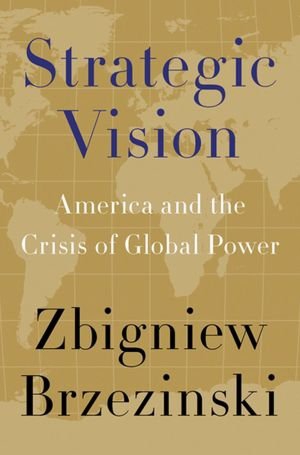
Vis à vis de l’Europe, les USA sont, dans les principes tout au moins, pour la construction européenne ; cependant, leur souhait est une Europe vassale. L’OTAN est non seulement le support essentiel de l’influence américaine mais aussi le cadre de sa présence militaire en Europe de l’Ouest. Pour autant, c’est un réel partenariat que souhaite l’Amérique ; on peut se demander toutefois, à l’aune de ces points de vues contradictoires (une Europe à la fois vassale et partenaire), quelle est la marge de manœuvre laissée à l’Europe par les Etats-Unis, et dans quels domaines elle pourrait s’exercer.
La problématique géostratégique européenne sera, lit-on, directement influencée par l’attitude de la Russie et de sa propre problématique. Et pour faire face à toute éventualité, les Etats-Unis doivent empêcher la Russie de « recouvrer un jour le statut de deuxième puissance mondiale » ; à terme, ce pays posera un problème lors de son rétablissement comme « empire ». L’Asie centrale, zone inflammable, pourrait devenir le champ de violents affrontements entre Etats-nations. Le Golfe persique est une chasse gardée des Etats-Unis ; « la sécurité dans cette zone est du ressort de l’Amérique ». On comprend mieux les enjeux de la guerre menée contre l’Irak. Le défi du fondamentalisme islamique quant à lui « n’est guère stratégique » ; ce qui expliquerait l’attitude ambiguë des USA à l’égard de celui-ci. L’Islam n’a pas d’ « Etat-phare » dirait Huntington. La Chine pour sa part évolue, mais l’incertitude demeure quant à sa démocratisation. Brzezinski note que dans le cas de l’émergence d’une « grande Chine », le Japon resterait passif ; cette neutralité cause quelques craintes aux Etats-Unis. De plus, les Etats-Unis doivent se prémunir contre l’éventualité d’un développement de l’axe sino-japonais. L’Amérique doit faire des concessions à la Chine si elle veut traiter avec elle ; « il faut en payer le prix » nous dit l’auteur. Toujours dans cette zone, la mesure impérative de la stratégie US est « le maintien de la présence américaine en Corée du Sud » ; elle est d’« une importance capitale ». Une autre crainte américaine serait la naissance d’une grande coalition entre la Chine, la Russie et peut-être l’Iran ; une coalition anti-hégémonique, « unie par des rancunes complémentaires ». Enfin, pour maintenir la primauté américaine, la solution adoptée et recommandée est « l’intégration de tous ces Etats dans des ensembles multilatéraux, reliés entre eux, et sous l’égide des Etats-Unis ».
Le chapitre suivant aborde l’Europe, « tête de pont de la démocratie », où il faut entendre en fait, bien sûr, « tête de pont des Etats-Unis ». L’Union Européenne, union supranationale, dans le cas où elle réussirait deviendrait une puissance globale, apprend t-on ; ce qui veut dire qu’elle ne l’est pas aujourd’hui. La réussite de ce projet, permettrait à ces pays européens « de bénéficier d’un niveau de vie comparable à celui des Etats-Unis » ; mais est-ce vraiment la panacée, et a-t-on besoin de cette Europe-là pour y parvenir ? Par ailleurs, ce niveau de vie n’est-il pas déjà atteint ? Dans l’appréciation de cette idée de projet européen, on note toujours un « oui, mais » ; en effet, cette Europe est placée incidemment « sous l’égide américaine ». Nous pouvons à juste titre nous demander où est le réel « partenariat », « la réelle équité » tant vantée par l’auteur ?
Brzezinski nous fait un tableau sans concession de l’Union Européenne : les Etats européens dépendent des Etats-Unis pour leur sécurité ; une « Europe vraiment européenne n’existe pas » ; et poursuit-il, « sans détour, l’Europe de l’Ouest reste un protectorat américain ». Tous ceci est un soufflet à ceux qui pensent que l’Europe, grâce à l’Union, est la structure permettant une indépendance vis à vis des Etats-Unis. Comme la situation de l’Union européenne est floue, indécise, « les Etats-Unis ne doivent pas hésiter à prendre des initiatives décisives ».
« Le problème central pour l’Amérique est de bâtir une Europe fondée sur les relations franco-allemandes, viable, liée aux Etats-Unis et qui élargisse le système international de coopération démocratique dont dépend l’exercice de l’hégémonie globale de l’Amérique ». Ainsi, comme partout ailleurs, les USA se moquent de leurs « alliés » du moment ; seuls comptent les intérêts finaux américains. Observant la politique européenne et son évolution récente, Brzezinski nous dit que la lutte contre la montée « de l’extrémisme politique et du nationalisme étriqué » doit se faire par la constitution « d’une Europe plus vaste que la somme de ses parties – c’est à dire capable de s’assigner un rôle mondial dans la promotion de la démocratie et dans la défense des droits de l’homme ». Le procédé est toujours le même ; pour asseoir ses fins, il faut « diluer» les entités dans des ensembles plus vastes. De plus, dans le processus de construction « européenne », l’UEO apparaît de fait comme l’antichambre de l’OTAN. Il est trop tôt, nous dit Brzezinski, pour fixer catégoriquement les limites orientales de l’Europe. Cependant, pour ce qui est du connu, « l’objectif géostratégique central de l’Amérique en Europe est de consolider sa tête de pont sur le continent eurasien » ; ceci pour constituer un tremplin dans le but « d’instaurer en Eurasie un ordre international fondé sur la démocratie et la coopération », en fait sur la domination américaine.
Le rôle de l’Allemagne est celui du bon vassal, « bon citoyen de l’Europe, partisan déterminé des Etats-Unis » ; elle n’a jamais remis en cause « le rôle central des Etats-Unis dans la sécurité du continent ». C’est l’effondrement du bloc soviétique qui a fait que « pour l’Allemagne, la subordination à la France n’offrait aucun bénéfice particulier ». Elle a aujourd’hui un rôle entraînant ; « en entretenant des relations étroites avec la puissante Allemagne, ses voisins bénéficient de la protection rapprochée des Etats-Unis ». Avec le rapprochement germano-polonais, « l’Allemagne peut exercer son influence jusque dans les pays baltes, l’Ukraine, la Biélorussie ». La sphère d’influence allemande s’est déplacée vers l’Est, et « la réussite de ces initiatives confirme la position dominante de l’Allemagne en Europe centrale ». Sans l’élargissement de l’OTAN aux pays de l’Est, « l’Amérique essuierait une défaite d’une ampleur mondiale », note Brzezinski. Ainsi, la collaboration américano-germanique est-elle « nécessaire pour élargir l’Europe vers l’Est ». Par ailleurs, nous apprenons que « l’Europe ne se réalisera pas sous l’égide de Berlin » ; parions toutefois que, pour l’auteur, cela ne s’envisage bien plutôt « sous l‘égide de Washington ».
Quant à la France, « puissance moyenne post-impériale », elle n’a pas les moyens de ses prétentions. Son rêve de grandeur pour une Europe sous conduite française correspondrait pour elle, nous dit l’auteur, à la « grandeur de la France ». Cependant, elle pourrait avoir des velléités pour traiter directement avec la Russie, et ainsi s’affranchir relativement des Etats-Unis ; nous voyons poindre là une légère inquiétude vis à vis de la France. Pour autant, la France est tout de même « un partenaire indispensable pour arrimer définitivement l’Allemagne à l’Europe ». N’étant pas assez forte pour faire obstacle aux objectifs géostratégiques américains en Europe, « la France avec ses particularismes et ses emportements peut être tolérée ». Quant au couple franco-allemand est primordial pour les intérêts américains ; une remise en cause de cette unité « marquerait un retour en arrière de l’Europe », et serait « une catastrophe pour la position américaine sur le continent ». Il est clair également que les Etats-Unis se servent de l’Allemagne (dominant économiquement en Europe) pour canaliser et « tenir » la France.
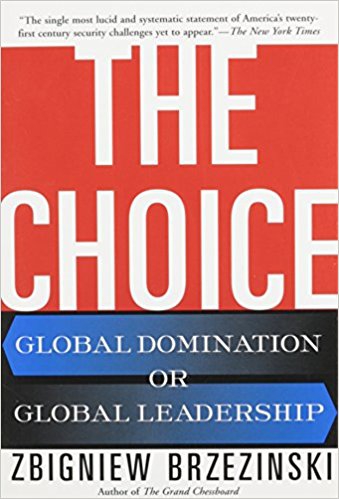
La chapitre suivant, intitulé « Le trou noir », traite de la Russie à l’aune des changements survenus depuis la fin de l’Union Soviétique et la naissance de la Communauté des Etats Indépendants. « Il est indispensable que l’Amérique contre toute tentative de restauration impériale au centre de l’Eurasie » qui ferait obstacle à ses objectifs géostratégiques premiers : « l’instauration d’un système euro-atlantique ». Après l’effondrement de l’Empire, qui a vu un vide politique (le « trou noir ») s’instaurer au cœur même de l’Eurasie, et qui a ramené la Russie « au niveau d’une puissance régionale du tiers monde », Brzezinski constate que cet état a très peu d’espaces « géopolitiquement sûrs ».
Les frontières actuelles de la Russie ont reculé de plus de mille kilomètres vers le Nord après 1991, et les états qui l’entourent actuellement constituent une ceinture, un obstacle à son épanouissement, à son développement ; ceci tant vers l’Est que vers la Mer Noire et le Sud-Est de l’ancien Empire. L’auteur fournit une réponse américaine aux questions russes ; l’Amérique se préoccupe de savoir « ce qu’est la Russie, et ce que doivent être ses missions ainsi que son territoire légitime ». Mais la raison essentielle qui fait le regard critique, systématique américain vis à vis de la Russie est qu’elle a « une identité eurasienne », une « personnalité eurasienne », ce que les Etats-Unis n’ont pas par nature. Et si les Etats-Unis soutiennent l’Ukraine c’est que sans ce dernier, aucune restauration impériale n’est possible pour la Russie. C’est l’application de la technique du « roll back », celle du refoulement de la Russie vers l’Asie.
Plus loin, Brzezinski note que les Etats de l’ex-URSS, pour échapper aux nouvelles visées « impériales » russes, « ont cherché à tisser leurs propres réseaux de relations internationales, avec l’Ouest pour l’essentiel, mais aussi avec la Chine ou les pays musulmans au Sud ». La seule solution honorable pour la Russie, nous dit l’auteur, est « une direction partagée avec l’Amérique » ; ce pays « devrait se résoudre à jouer un rôle de tampon entre l’expansionnisme chinois et l’Ouest », à choisir l’Europe, alliée des Etats-Unis, pour faire face à d’éventuelles visées expansionnistes chinoises. Reste donc pour Moscou le « choix européen, seule perspective géostratégique réaliste » ; et, par choix « européen » ont peut entendre, en fait, choix « occidentalo-américain ». Pour les Etats-Unis, « la Russie paraît vouée à devenir un problème », et d’autant plus si d’aventure une alliance avec la Chine et l’Iran se concrétisait. C’est la raison pour laquelle les Etats-Unis doivent « éviter de détourner la Russie de son meilleur choix géopolitique » à savoir, l’Europe atlantiste. La Russie doit s’intégrer à l’Europe, en suivant un processus graduel, commençant par sa « participation au Conseil de l’Europe », à l’instar de la Turquie Kémaliste qui « s’est engagée sur la voie de la modernisation, de l’européanisation et de la démocratisation » ; la deuxième étape de cet arrimage européen de la Russie serait la proposition d’une charte avec l’OTAN par l’Europe et l’Amérique. Enfin, ultime étape dans ce processus, l’intégration de la Russie dans l’Union Européenne. Cependant, précise l’auteur, le choix de l’Europe pour la Russie se fera plus facilement une fois l’Ukraine intégrée elle-même à l’OTAN et à l’Union Européenne.
Les « Balkans eurasiens » sont l’objet du chapitre suivant. Ces nouveaux « Balkans » sont constitués de neufs pays : le Kazakhstan, le Kirghizistan, le Tadjikistan, l’Ouzbékistan, le Turkménistan, l’Azerbaïdjan, l’Arménie, la Géorgie et l’Afghanistan. Les facteurs d’instabilité des ces « Balkans eurasiens » sont nombreux : de graves difficultés nationales, des frontières contestées des voisins ou des minorités ethniques, peu d’homogénéité nationale, des luttes territoriales, ethniques ou religieuses. Toutes les options peuvent donc être envisagées quant à l’avenir de cette région, nous dit Brzezinski.
Les voisins intéressés, nourrissant des visées politiques sur la région sont la Russie, la Turquie, l’Iran et la Chine. La Russie qui veut retrouver sa zone d’influence, renouer avec ses républiques d’hier, et dont les visées géopolitiques vont vers le Sud, en direction de l’Azerbaïdjan et du Kazakhstan.; la Turquie qui se considère comme le leader potentiel d’une communauté turcophone aux frontières très floues ; l’Iran, dont le principal souci est le renouveau de l’islam en Asie centrale ; la Chine enfin, que les ressources énergétiques de la région attirent, et qui veut y avoir un accès direct hors contrôle de Moscou. Les motifs d’intérêts sont essentiellement économiques : « la région renferme une énorme concentration de réserve de gaz naturel, d’importantes ressources pétrolières, auxquelles viennent s’ajouter des gisements de minerais, notamment des mines d’or ». Mais il y a aussi des raisons plus profondes (et qu’il est curieux de voir soulever par un américain) des facteurs « relevant de l’histoire ».
D’autres pays ont leurs regards tournés vers cette région : le Pakistan qui veut exercer une influence politique en Afghanistan et profiter à terme de la construction de pipelines reliant l’Asie centrale à la Mer d’Oman. L’Inde qui, pour faire face aux projets du Pakistan et à la montée de l’influence chinoise, est favorable au développement de l’influence iranienne en Afghanistan, ainsi qu’à une présence russe plus importante dans ses anciennes républiques. Les Etats-Unis enfin, qui « agissent en coulisse », cherchent à ménager le pluralisme géopolitique, et tentent « d’empêcher la Russie d’avoir la suprématie ». La dynamique russe et les « ambitions anachroniques » de Moscou dans cette région sont « nuisibles à la stabilité de celle-ci ». Et nous apprenons que « les objectifs géostratégiques américains recouvrent en fait les intérêts économiques de l’Europe et de l’Extrême-orient » ; nous sommes toujours dans cette logique « philanthropique » américaine. L’engagement des Etats-Unis dans cette région, nous dit Brzezinski, est considérée par les pays concernés comme « nécessaire à leur survie ». Les motifs généraux américains sont les pipelines et leurs tracés actuels ; le but des Etats-Unis étant de ne plus passer par des pipelines courant sur le territoire russe, non plus au Nord donc mais par le Sud et la médiane de cette région des Balkans eurasiens. « Si un pipeline traversait la Mer Caspienne pour atteindre l’Azerbaïdjan et, de là, rejoignait la Méditerranée en passant par la Turquie, tandis qu’un autre débouchait sur la Mer d’Oman en passant par l’Iran, aucune puissance unique ne détiendrait le monopole de l’accès à la région ». On comprend aisément à cette lumière les actions et les soutiens américains à tel ou tel pays ; on peut saisir ainsi la bienveillance des Etats-Unis pour les « étudiants en théologie », les Pachtouns de Kaboul, au détriment des Tadjiks d’Ahmed Shah Massoud concentrés dans les régions du Nord de l’Afghanistan.
Dans l’avenir, Brzezinski voit dans ses Balkans eurasiens une montée de l’islamisme, des conflits ethniques, un morcellement politique, et une guerre ouverte le long de la frontière méridionale de la Russie. Une zone donc qui fera sans doute parler d’elle bientôt.
Quelle doit être la politique américaine en extrême orient ? C’est l’objet du chapitre suivant. Pour être efficace, elle doit avoir un point d’ancrage dans cette région, nous dit l’auteur. Il est essentiel, poursuit-il, que les Etats-Unis aient d’étroites relations avec le Japon, et qu’ils établissent une coopération avec la Chine. Si l’extrême orient connaît aujourd’hui un dynamisme économique extraordinaire, il va néanmoins de pair avec une incertitude politique croissante. C’est « un volcan politique en sommeil » ; il ne possède pas de « structures de coopération multilatérale » comme l’Union européenne et l’OTAN, et ce malgré l’ASEAN. Cette région est devenue, selon l’Institut International d’Etudes Stratégiques, « le plus gros importateur d’armes, dépassant l’Europe et le Moyen-Orient ».
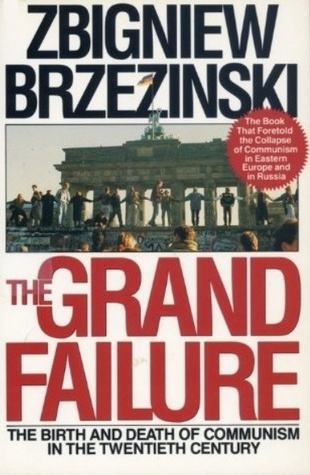
Il existe dans cette partie du monde de nombreux points de frictions : les relations entre la Chine et Taiwan ; les îles Paracels et Spratly, objets de multiples convoitises ; l’archipel Senkaku qui sont disputées par la Chine et le Japon ; la division de la Corée et l’instabilité inhérente à la Corée du Nord ; les îles Kouriles, sujets à controverses entre la Russie et le Japon ; enfin, des conflits territoriaux et / ou ethniques divers, le long de la frontière chinoise, également entre le japon et la Corée, enfin entre la Chine et l’Indonésie à propos des limites océaniques. La Chine est « la puissance militaire dominante de la région » ; et, dans l’absence d’équilibre entre les puissances, l’on a vu l’Australie et l’Indonésie se lancer dans une plus grande coopération militaire ; Singapour a également, avec ces deux pays, développé une coopération en matière de sécurité. La probabilité de voir se réaliser ces conflits dépendront « de la présence et du comportement américains ».
Brzezinski vante la Chine du passé, « pays qui [ au XVIIème siècle ] dominait le monde en termes de productivité agricole, d’innovation industrielle et par son niveau de vie ». Puis, il compatit avec les « cent cinquante années d’humiliation qu’elle a subies » ; la Chine doit être « lavée de l’outrage causé à chaque chinois », et « les auteurs doivent être châtiés ». Parmi les auteurs, la Grande-Bretagne a été dépossédée de son Empire, la Russie a perdu son prestige et une partie de son territoire ; restent les Etats-Unis et le Japon qui sont le principal souci de la Chine aujourd’hui. Selon l’auteur, la Chine refuserait « une véritable alliance sino-russe à long terme, car elle aurait pour conséquence de renforcer l’alliance nippo-américaine » et car « cette alliance empêcherait la Chine d’accéder à des technologies modernes et à des capitaux, indispensables à son développement ».
Nous est brossé ensuite les différents cas de figure possibles. L’auteur fait état des prévisions prometteuses relatives à la Chine ; cependant, il doute de ses capacités à « maintenir pendant vingt ans ses taux de croissance spectaculaire ». Actuellement, nous dit-il, la croissance rapide de la Chine accentue la fracture sociale liée à la répartition des richesses ; ces inégalités ont un impact sur la stabilité du pays. Mais le rayonnement de la Chine « pourraient bien amener les riches chinois d’outre-mer à se reconnaître dans les aspirations de la Chine ». Autre cas de figure évoqué, l’éventualité d’un repli sur soi de la Chine.
Dans son espace régional, la Chine joue le Pakistan et la Birmanie contre l’Inde son « rival géopolitique ». L’objectif de Pékin serait « une plus grande influence stratégique sur l’Asie du Sud-Est », contrôler le détroit de Malacca et le goulet de Singapour. La Chine élabore « une sphère d’influence régionale » ceci en particulier vers ses voisins de l’Ouest qui cherchent un contre poids à l’influence russe. Brzezinski traite des relations américano-chinoise mais sans comprendre l’attitude de Pékin, et en jouant les naïfs : « (…) en raison de ce qu’ils sont et de leur simple présence, les Etats-Unis deviennent involontairement l’adversaire de la Chine au lieu d’être leur allié naturel ». Par ailleurs, les Chinois savent que « leur influence dans la région se trouverait automatiquement renforcée par la moindre attaque qui viendrait miner le prestige américain ». L’objectif central de la politique chinoise serait d’affaiblir l’Amérique pour que cette dernière ait besoin d’une Chine « dominant la région » et « mondialement puissante pour partenaire ».
Autre point d’extrême orient analysé par l’auteur : le Japon, dont les relations avec l’Amérique, nous dit-il, feraient dépendre l’avenir géopolitique de la Chine. Le paradoxe du Japon est qu’il « a beau être riche, dynamique et économiquement puissant, il n’en est pas moins un Etat isolé dans sa région et politiquement limité dans la mesure où il est tributaire d’un allié puissant qui s’avère être non seulement le garant de l’ordre mondial mais aussi son principal rival économique » : les Etats-Unis. Mais, « la seule véritable question politique pour le Japon consiste à savoir comment utiliser la protection des Etats-Unis afin de servir ses propres intérêts ». Le Japon est, apprend-t-on, un pays «qui ne se satisfait pas du statu quo mondial ». Depuis le milieu des années quatre-vingt-dix, note Brzezinski, on observe une redéfinition de la politique étrangère de ce pays. Cette redéfinition porte le Japon à « ménager la Chine plutôt que de laisser le soin aux Etats-Unis de la contenir directement ». Cependant « très peu [de japonais] se prononcent en faveur d’une grande entente entre le Japon et la Chine » car cela déstabiliserait la région, et provoquerait le désengagement des USA, subordonnant la Corée et Taiwan à la Chine, mettant « le Japon à la merci de cette dernière ».
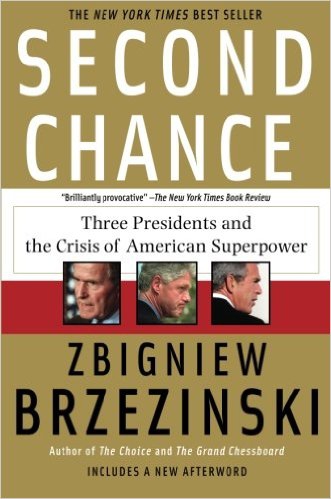
Les Etats-Unis veilleront à ce que le Japon mette « en place une coopération véritablement internationale, mieux institutionnalisée » à l’instar du Canada, « Etat respecté pour l’utilisation constructive de ses richesses et de son pouvoir, et qui ne suscite ni craintes ni ressentiments ». Les objectifs globaux des USA étant de faire du Japon « le partenaire essentiel et privilégié de la construction d’un système » de coopération mondiale.
La partie n’est pas gagnée d’avance en extrême orient pour les Etats-Unis, concède Brzezinski, car « la création d’une tête de pont démocratique est loin d’être imminente (…) contrairement à ce qui s’est passé en Europe ». On note la prudence des Etats-Unis vis à vis de la Chine : « il est préférable de la traiter comme un acteur crucial sur l’échiquier mondial », et la faire participer au G7, lui donnant accordant ainsi du crédit et satisfaisant son orgueil. Les USA doivent également « se montrer conciliant sur certaines questions, tout en restant ferme sur d’autres », poursuit Brzezinski. Et revenant sur le problème de Taiwan, nous apprenons que « les Etats-Unis interviendraient pour défendre non pas l’indépendance de Taiwan, mais leurs propres intérêts géopolitiques dans la région Asie-Pacifique » ; voilà qui est clair. Pour ce qui concerne la Corée et le Japon, l’Amérique peut « jouer un rôle décisif en soutenant la réconciliation » ; la stabilité apportée faciliterait « le maintien de la présence des Etats-Unis en extrême orient », et cette réconciliation « pourrait servir de base à une éventuelle réunification » de la Corée
Toutefois, nous dit Brzezinski, les Etats-Unis ne sont pas seulement la première superpuissance globale, mais seront très probablement la dernière, ceci à cause de la diffusion de plus en plus généralisée du savoir et de la dispersion du pouvoir économique. Si les Etats-Unis ont pu exercer une prépondérance économique mondiale, ils le doivent à « la nature cosmopolite de [leur] société (…) qui [leur] a permis (…) d’asseoir plus facilement leur hégémonie (…) sans pour autant laisser transparaître [leur] caractère strictement national ». Il est peu probable qu’un autre pays puisse faire de même ; « pour simplifier, n’importe qui peut devenir Américain, mais seul un Chinois peut être Chinois ». Il transparaît dans ces propos une négation radicale de l’altérité. Les Etats-Unis ne veulent pas « l’autre », ils ne le conçoivent même pas ; ils ne connaissent que l’autre en tant que « même », un clone en quelque sorte ; piètre intelligence du monde, de la richesse, de la diversité de l’homme que ce rapport à l’autre, spécifiquement américain.
Comme la puissance Américaine ne saurait durer sans fin (nous ne sommes pas arrivé avec le triomphe de l’Amérique et de ses « idéaux » à la fin de l’Histoire, pour reprendre les mots d’un illuminé nommé Francis Fukuyama), Brzezinski nous trace « l’après domination états-unienne ». Le legs de l’Amérique au monde, à l’histoire, doit être une démocratie planétairement triomphante, nous dit-il, et surtout, la création d’une « structure de coopération mondiale (les Nations Unies sont « archaïques ») (…) qui assumerait le pouvoir de « régent » mondial ». Voilà donc un testament établi pour la poursuite mondiale – et jusqu’à la fin des temps – du « rêve américain ». Mais chacun sait que les temps comme les rêves ont toujours une fin.
Si la recension des objectifs géostratégiques américains est établie, la formulation et la structure interne de l’ouvrage sont assez confuses puisque l’on retrouve souvent des éléments concernant un sujet deux ou trois chapitres plus loin. L’auteur manque un peu de rigueur dans son exposition. Plus généralement, si l’on comprend la logique de ce discours de la part d’un américain, on ne peut décemment acquiescer aux propos de Zbigniew Brzezinski. Dès lors que l’on n’est pas américain, on ne peut pas souscrire aux thèses énoncées dans ce livre; ce serait sinon, pour prendre l’exemple d’un animal, comprendre les motivations de son prédateur, et accepter de se laisser dévorer par lui. Si certains constats de l’auteur sont justes et relèvent du bon sens, il n’en demeure pas moins qu’il faut combattre ces objectifs impériaux / impérialistes américains malgré cette apathie qui caractérise malheureusement les Européens en général et les Français en particulier, cet état de « dormition » dont parle Dominique Venner (1).
Philippe Raggi
29/04/2014
PS : J’avais écrit ce commentaire sur le livre de Brzezinski dès la parution de son ouvrage en France. Je n’ai rien modifié à ce texte depuis lors.
Source : A l’Est de Suez, Blog de Philippe Raggi sur l’Asie du Sud-Est et notamment sur l’Indonésie.
http://philippe-raggi.blogspot.fr/2014/04/loeil-americain...
Zbigniew Brzezinski, The Grand Chessboard : American Primacy and Its Geostrategic Imperatives, New York, Basic Books, 1997.
Le grand échiquier, traduction de The Grand Chessboard : American Primacy and Its Geostrategic Imperatives, Paris, Collection Pluriel, Hachette Littérature, 1997
Le grand échiquier, éditions Fayard/Pluriel, mars 2011, 288 pages (réédition)
Zbigniew Brzezinski est expert au Center for Strategic and International Studies (Washington, DC) et professeur à l’université Johns Hopkins de Baltimore. Il fut conseiller du président Carter, s’oppose à Reagan, Clinton et Bush et reste toujours un ardent partisan de la suprématie américaine dans le monde..
Note :
(1) Cf. : http://www.dominiquevenner.fr/2010/07/l%E2%80%99europe-en...
Correspondance Polémia – 5/05/2014
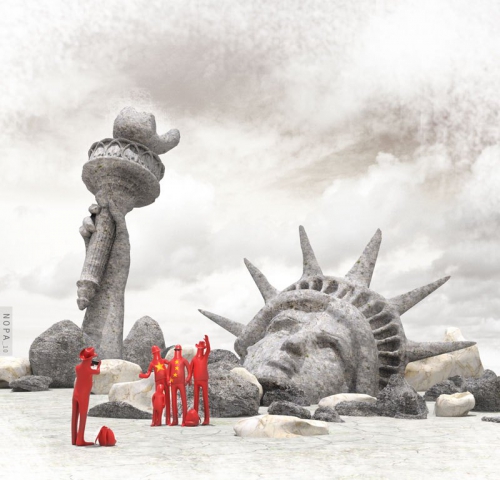
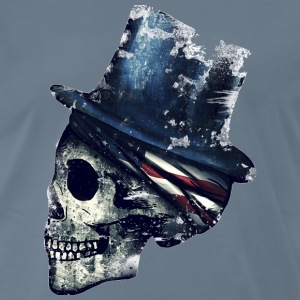





 del.icio.us
del.icio.us
 Digg
Digg